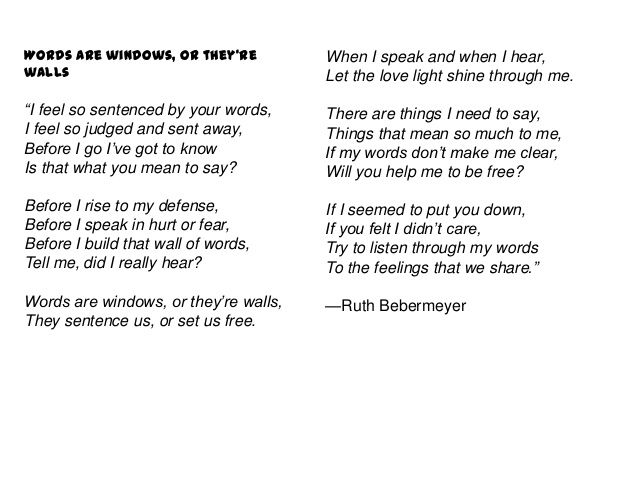What to do when words are walls not windows.
- Zitah McMillan
- Feb 6, 2019
- 3 min read
We have all been in those meetings, or family situations, where you offer up an opinion or suggestion and are immediately met with:
"The problem is...." or "Here's the problem..."
Barely have you spoken before you hear the other person's reflective response pattern, often a negative one, that is intent on telling you why whatever you said won't work. If you think about those times when this has happened, and if you're with that person quite often then you will have heard it many times, you may have got irritated, frustrated, angry, defensive or all of those emotions.
It's not easy to take a step back and consider what motivates the other person, there's a lot of great advice in Marshall B. Rosenberg's book, Nonviolent Communication (A language of Life) about conflict resolution, you may not consider these situations to be conflict in the traditional sense. I believe they are. Right at the start of his book, the poem Words are Windows (or They're Walls) by Ruth Bebermeyer is reproduced (hence the headline for this article).

Of course it's hard to be as honest and articulate as Ruth was in this beautifully concise poem, I'm sure that you've felt judged and metaphorically sent away when someone says "the problem is" in response to your suggestion. So what to do?
There's a lot in Marshall's book about distinguishing the difference between needs and analysis, that's where I would start in trying to understand how to move a discussion forward after being met by a wall of words. He identifies that most people are very skilled at analysing the perceived wrongness of others, and their thoughts/ideas but they aren't skilled at clearly expressing their own needs.
Recently, I put this to the test. I had been met with a wall of "the problem is" responses to a number of suggestions, reflecting on the individual concerned led to my understanding that she had always been the solution maker in her environment, she was used to making decisions on her own and not having to really work them through with others. My putting options or intellectual analysis of the problem we were trying to solve was either being received as criticism or was a threat to how she saw herself, ok that sounds a bit dramatic but you know the type of person I mean. To try and resolve this decision deadlock I had to put my ego to one side, try to understand what she needed and employ a more empathetic path.
There are many times when people need to empathy before they can engage with what is being said, whether the issue is large or small. We are all pretty good at saying what's wrong with something, that's easy, but trying to understand and use words as windows takes practice and skill. Not something we're generally trained to do.
I found a path through the wall of words, it took patience and time (plus the occasional break when I had hit my head too many times against that metaphoric wall - we're all human). I framed the shared problem we were trying to solve to which we could both agree and then asked her what she needed from it as well. That took further time but it was well worth it. I'd encourage you to try an empathetic approach too, it takes practice, it takes patience and above all it takes understanding,



Comments